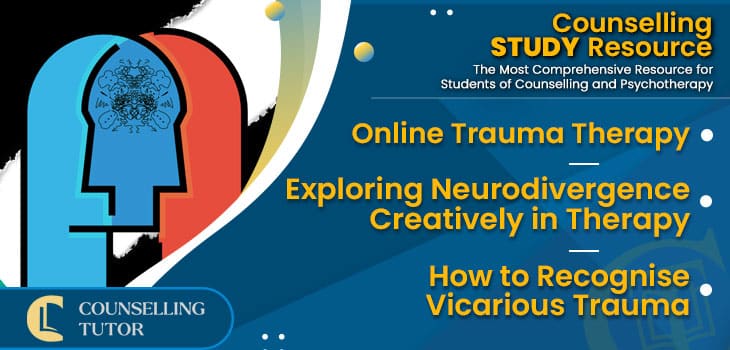See Counselling Skills Used in Real Sessions by Qualified Therapist
Real Sessions – Real Presentations – Real Skills
Gain the competence and confidence to use counselling techniques effectively!

In Episode 309 of the Counselling Tutor Podcast, your hosts Rory Lees-Oakes and Ken Kelly take us through this week’s three topics:
How to Recognise Vicarious Trauma
Online and telephone counselling have become increasingly popular in recent years, making it even more important that we’re aware of the challenges that can come from working remotely. In this section, Rory and Ken take us through some key things to be aware of when working online:

Real Sessions – Real Presentations – Real Skills
Gain the competence and confidence to use counselling techniques effectively!
In this week’s ‘Practice Matters’, Rory speaks with Amy Peters about exploring neurodiversity creatively.
The key points of this discussion include:

On-demand access to a rich lecture library covering theory, skills, and professional development for counselling students—Mapped to the UK awarding body criteria
“The Student Library has been BRILLIANT, I can’t recommend it enough!
It has been a lifeline in helping me prepare for practice and my first clients. If you’re considering it, go-for-it, it’s absolutely worth it!”
Kelly – Graduated and now in practice.
In this section, Rory and Ken take us through vicarious trauma. How can we recognise it in ourselves and others and how can it impact us?
How to Recognise Vicarious Trauma

Get on-demand Certified CPD that is implementable in your practice
